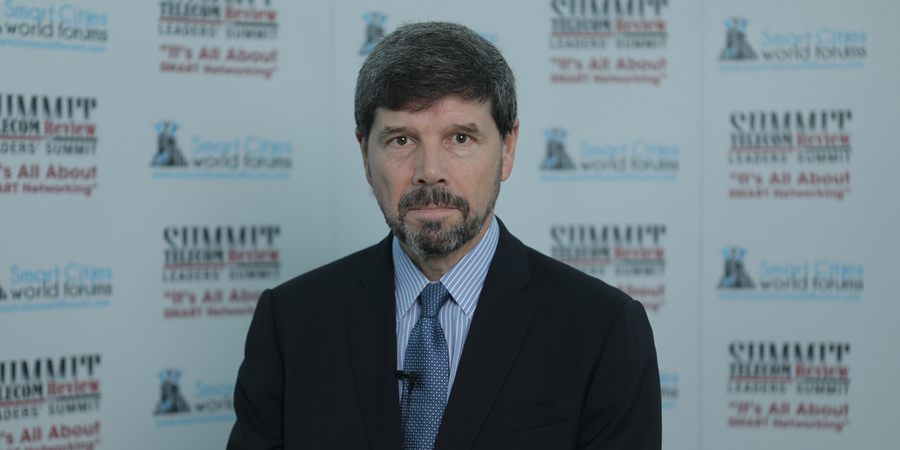Telecom Review managed to secure an exclusive interview with PCCW Global CEO, Marc Halbfinger onsite at the 11th edition of the Telecom Review Leaders’ Summit following his presentation at the industry-leading conference.
In a brilliant interview, Halbfinger discusses the unique aspects of the company’s recent acquisition of Console Connect and how it will help the telco provider become a digital platform of choice for hybrid cloud and automated networks.
In addition to this, he discusses its Proof of Concept (PoC) with blockchain technology and the major PEACE cable project it has embarked upon with HENGTONG Group.
Can you tell us about the recent acquisition of Console Connect, and how unlike traditional acquisitions, you plan to integrate your company into their system?
At the core, before the acquisition of Console Connect, PCCW Global aspired to get into more software applications - and we were doing a little bit of it. However, the acquisition of Console Connect put us straight into our tactical objective, and arguably strategic objective going forward of becoming a digital platform of choice for hybrid cloud utilizations and also automated network-to-network delivery.
If we were to just try and integrate Console Connect into what PCCW Global was doing, then I don’t think we would be able to achieve the same objective. We really needed to reshape the views of all of our colleagues and we’ve taken two decisions. One is that we’re going to move into agile-based working methodology for the entire company, and that was quite a tough decision, but it is one we’re moving into quite well I believe. The second is to make sure that the company understands that digital platforms/software-based platforms are critical but not divorced from the network. There needs to be some sort of consensus-based delivery of service to end-users in the B2B space that mixes both network and platform.
Users today are interested in making sure the acquisition of both the network and cloud application capability is done ubiquitously, and not in separate environments - and I think that is a key driver of where we’re headed.
PCCW Global is doing a PoC with blockchain, has the technology now become an alternative to the settlements payment process?
Blockchain isn’t an alternative to the settlements process, the settlements process is defined and it’s quite a finite environment. Blockchain is delivering an approach to automating the settlements process, and it allows us to move settlements processes from months to minutes. I think that’s the key.
PCCW Global has been involved at the outset of the first Proof of Concept together with Colt, but as I said during my presentation, we’ve opened that up to the entire industry because we don’t believe that the back-end is some area that one service provider needs to compete, but rather it’s where we all need to find common ground, work together and create a governance framework that makes sense for the industry.
So, the next step is to determine whether or not we can create an industry-wide governance process, a construct as you will, that will facilitate automated settlement of inter-delivery of various ICT services around the world and through various functions.
How much of a challenge is it to create that governance framework that makes sense for the entire industry?
I don’t know if it’s a challenge, but at the moment we’re used to paper-based contracts and people settling on a bilateral basis. However, having a blockchain environment allows trust to be delivered through the industry, and contracts moved to be delivered through code effectively.
We codify contracts into IT code that facilitates dispute management and resolution in a much more automated and sensible basis. So those are the next steps in terms of how that’s done, and how the industry agrees on what the procedures are and how technology is managed over time, because again technology will evolve.
All of that needs to be agreed with a common set, but the industry is used to doing that, because we’ve done undersea cables for hundreds of millions of dollars together. If we can build an undersea cable system together which is complex technology, then I think we can agree on how we code a contract together.
PCCW Global and HENGTONG Group aim to connect three continents with the high-speed PEACE cable project. Can you provide us with an update on the project?
PEACE is moving very quickly. HENGTONG, which is a manufacturer of fiber systems in China, together with Huawei Marine are building a first component of it. PCCW Global is actively involved in moving that forward. We’ve also publicly announced that we’ve agreed landing in Marseille together with Orange.
We believe that PEACE will be another step towards facilitating the ICT infrastructure for the one belt, one road economy that is moving out of Asia, and I’m very excited about it.
This is the 11th edition of the Telecom Review Leaders’ Summit. You’ve been in attendance at almost every one. What is it that differentiates this event from other ICT conferences?
It is informative, it’s brilliant. I really enjoy coming to the conference every year as it provides me with an opportunity to find out what’s happening in the region. The content and substance of what the Telecom Review team deliver is spot on, and I just really enjoy listening and participating in this event every year.










